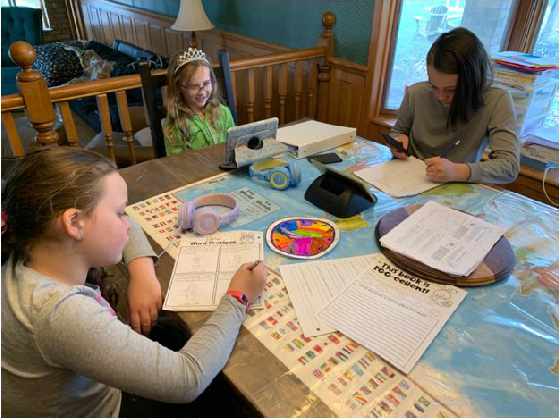
Students at the Oxford School in Woodstock are doing their work from inside their homes right now after the institution closed down last month due to COVID-19, learning through instructional videos from their teachers and other features.
*Submitted by freelance writer and incoming Head of School for the Oxford School, Adam de Pencier.*
WOODSTOCK - The Oxford School is a small school that faced a big decision.
“Do we close our doors during the entire provincial shut-down, or could we somehow keep running and reach our families and students”, teacher Alisha Van Haeren told me over the phone.
Located on the north edge of Woodstock, the K through Grade 8 institution has always been known for its exceptionally close-knit community, one which includes a daily iteration of O Canada, a student affirmation, and tea each Friday afternoon.
This was no ordinary place.
“The teachers found out Friday morning (March 13th) that we’d be closing, and by that afternoon everyone had prepared two weeks worth of packages that went home with the students. After that it was a lot of hard work revving up our technical capacity for the weeks ahead and that’s what we’re delivering now”, Van Haeren explained.
This was not just a simple matter of directing students to a given web site with some suggestions, but a strategy to engage the students through an entire teaching day.
Ben Shapton, a grade 7 student from Woodstock told me “our teacher makes a daily video and gives us a game plan for the day. The classes last about an hour each and I’m able to call my teacher anytime. In fact she’ll just call to ask how I’m doing. Same for my classmates”.
Ben’s mother, Susie Shapton, remarked: “Ben’s teacher, Ms. Garside, has been just phenomenal at reaching out, and also making sure that the students are keeping in contact with each other along the way”. Ben’s father Shawn told me “sometimes the teachers will call just to chat and see how Ben and the other kids are doing, and that’s as valuable, if not more so, than anything else”.
Routines vary however from family to family in how parents and children adhere to a schedule. Amber and Martin Caldwell of Oxford County have four children at the Oxford School, ranging in age from 5 to 13.
“We had home schooled before we enrolled the children at the school, so we had some experience of how to manage the kids and get the work done; so we’re not setting a strict schedule of ‘you have to be here then and do this now’, but just make sure the resources are there so when the children are ready, they get down to work. They pretty much just get at it, mostly at the same time they’d be up anyway.
Kim Dorken, a long time Oxford School teacher, currently teaching JK, has been a behind the scenes driving force in engaging and organizing the technical effort at the school.
“Actually, you could have spoken with any of our teachers and said the same thing of them. Our school really is a team, and everyone has pulled out the stops. With my own class we begin the day with our usual get-together, morning message, talk about our calendar, and all the literacy and math chatter we can pack into that time. The students are still seeing my face and hearing my voice, so I’m able to keep encouraging them.
The children also engage with each other and share their tasks; there are also several instructional videos and other features where I’m teaching and reading on-line and the response is overwhelmingly positive. Even though not physically present, I grasp their learning.”
I asked the parents about what their children are concerned about with the present shutdown, and the coronavirus itself.
Amber Caldwell, told me “we try and explain to each of our four children, as age appropriate, what the whole virus is about, that it’s unlikely to really hurt you, to keep washing your hands and so forth. So it’s the same information, but with the amount of requisite detail. Our son Wyatt is in Grade 8, so is graduating this June; so of course he is wondering about whether there will be a Graduation ceremony as planned, and about seeing his friends all together at school.”
“Our kids all have different factory settings about how much they need to know and the ripple effect that can have. Sometimes it’s a positive ripple effect as they feel a bit more in control, but often it can lead to anxiety and sadness”, says Dr. Michael Evans, a family physician and professor of medicine at the University of Toronto, and now helping lead Health Apple Inc. in Cupertino, California.
“Children are generally being blitzed with information from sources that can be very biased. Unfortunately, much of what rises to the top isn’t based on quality, but rather on algorithms that detect how popular it is. Popularity is typically based on shock value or fame, not evidence. Of course, parents aren't immune to this either. My advice is to sit down at dinner and ask your kids what they’ve learned or understand about COVID19, and once that is out on the table, try and congratulate them on where they are accurate, but correct their inaccuracies. Helping them see that what they read in their social feeds can be wrong will help them long after Coronavirus. Undoubtedly there will be questions, and you get bonus points for showing your kids how you get to the right answer. I think, especially with COVID19, helping your kids to understand that there are things we don't know and how this is an evolving story is also a great skill.”
Van Haeren shared “an age appropriate cartoon of how the coronavirus spreads, and I think our students and parents found that helpful." You can see the cartoon here.
Why has the school been able to manage the transition to online as well as it has, I ask the parents?
Shawn Shapton tells me: “so I do the drop-off and pick-up each day with Ben, and there is always someone greeting you coming and going. When you have that level of connection, you’ve built a two-way street of trust and understanding that enables the families, students and teachers to basically say, ‘OK, so we figuring this out, let’s keep back and forthing until we get this right’.
Martin Caldwell concurs: “the teachers have a level of passion for the place to begin with, so the possibility that something could be lost, including the school year, was something they weren’t prepared to accept. Now it’s spring and the kids are outside more, riding their bikes, jumping on the trampoline, but when it comes to school they are moving ahead. But of course no one knows when this is all going to end”.
Indeed.
When asked what he most misses about going to school each day, Ben Shapton answers, with admirable concision: “everything”.
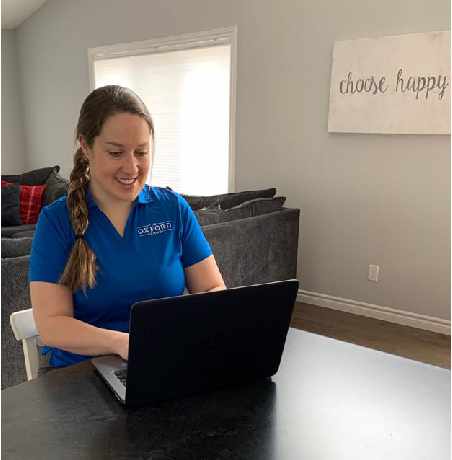
Oxford School JK Teacher Kim Dorken hard at work teaching her class online.



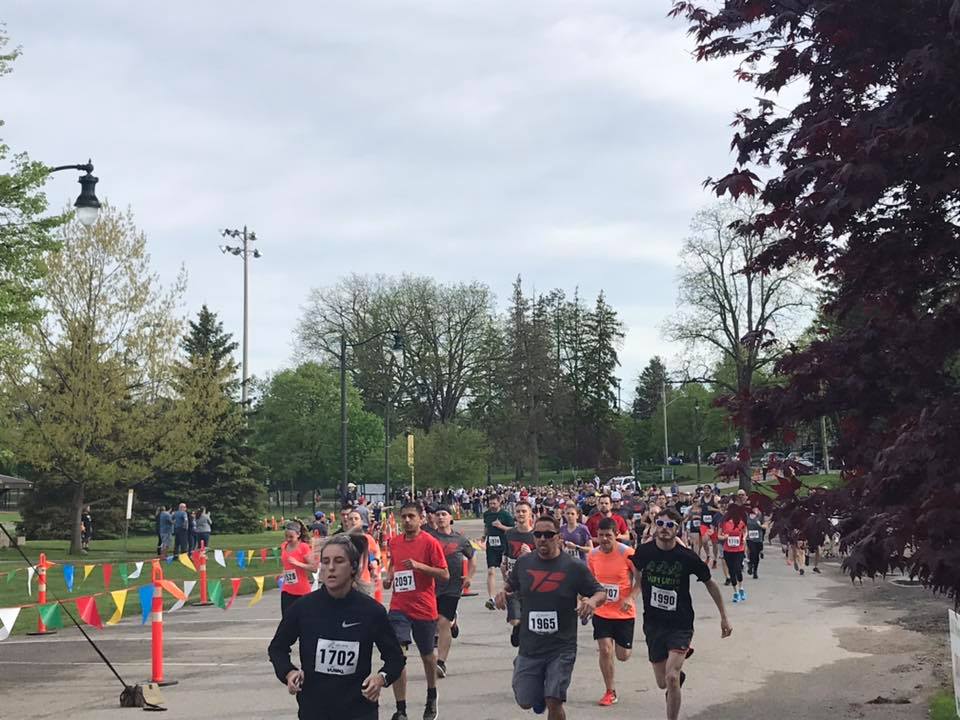 Dairy Capital Run Returns to Discovery Farm Woodstock
Dairy Capital Run Returns to Discovery Farm Woodstock
 LPS Officer from Woodstock Charged by OPP
LPS Officer from Woodstock Charged by OPP
 Golf Carts Stolen and Damaged in Ingersoll
Golf Carts Stolen and Damaged in Ingersoll
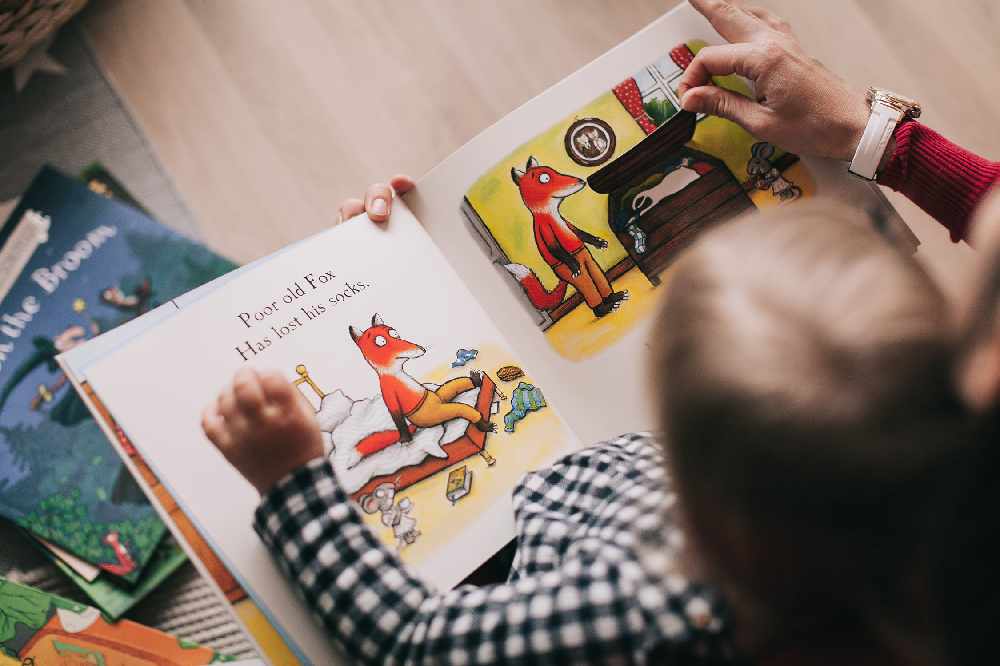 Rural Engagement Survey Closing Soon
Rural Engagement Survey Closing Soon
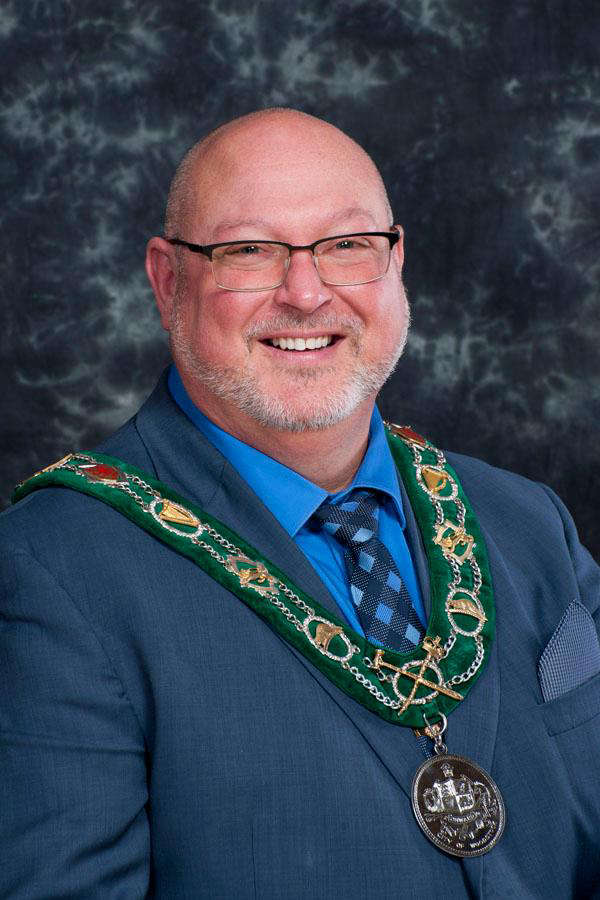 Tickets Available for Woodstock Mayor's Breakfast
Tickets Available for Woodstock Mayor's Breakfast
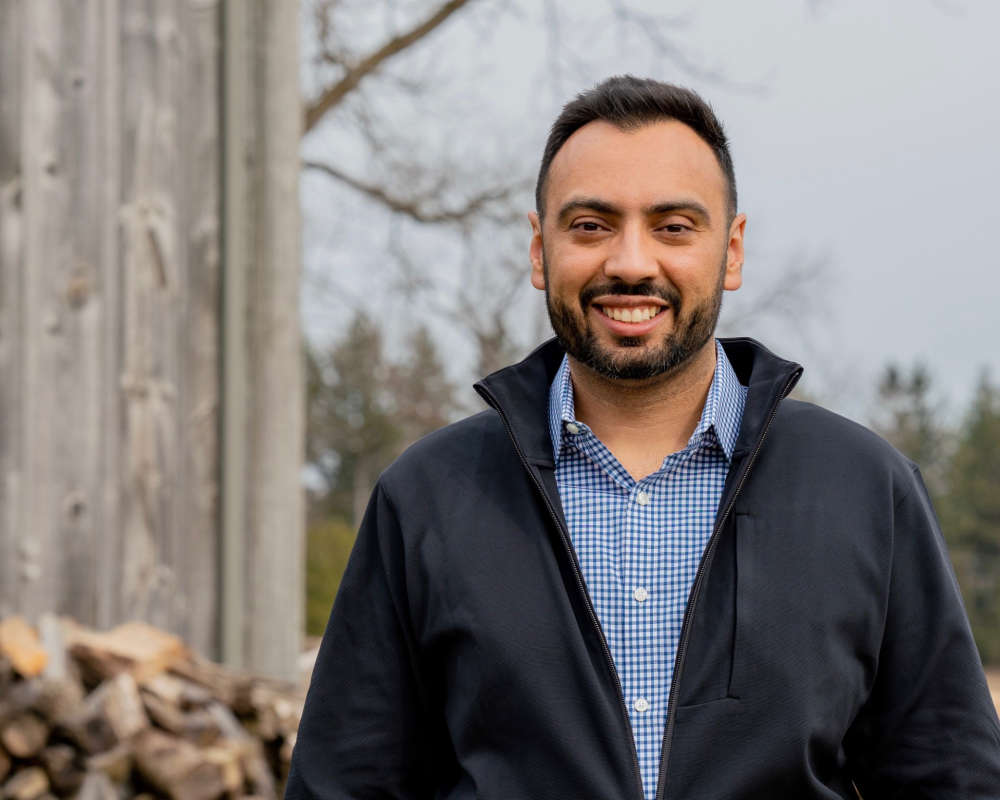 Oxford MP Responds to Federal Budget
Oxford MP Responds to Federal Budget
 Norfolk OPP Briefs - April 17th
Norfolk OPP Briefs - April 17th
 Gas Hike on the Horizon for Ontario
Gas Hike on the Horizon for Ontario
 Crime Stoppers Launches Virtual Jail & Bail Fundrasier
Crime Stoppers Launches Virtual Jail & Bail Fundrasier
 Impaired Driver Busted in Ingersoll
Impaired Driver Busted in Ingersoll
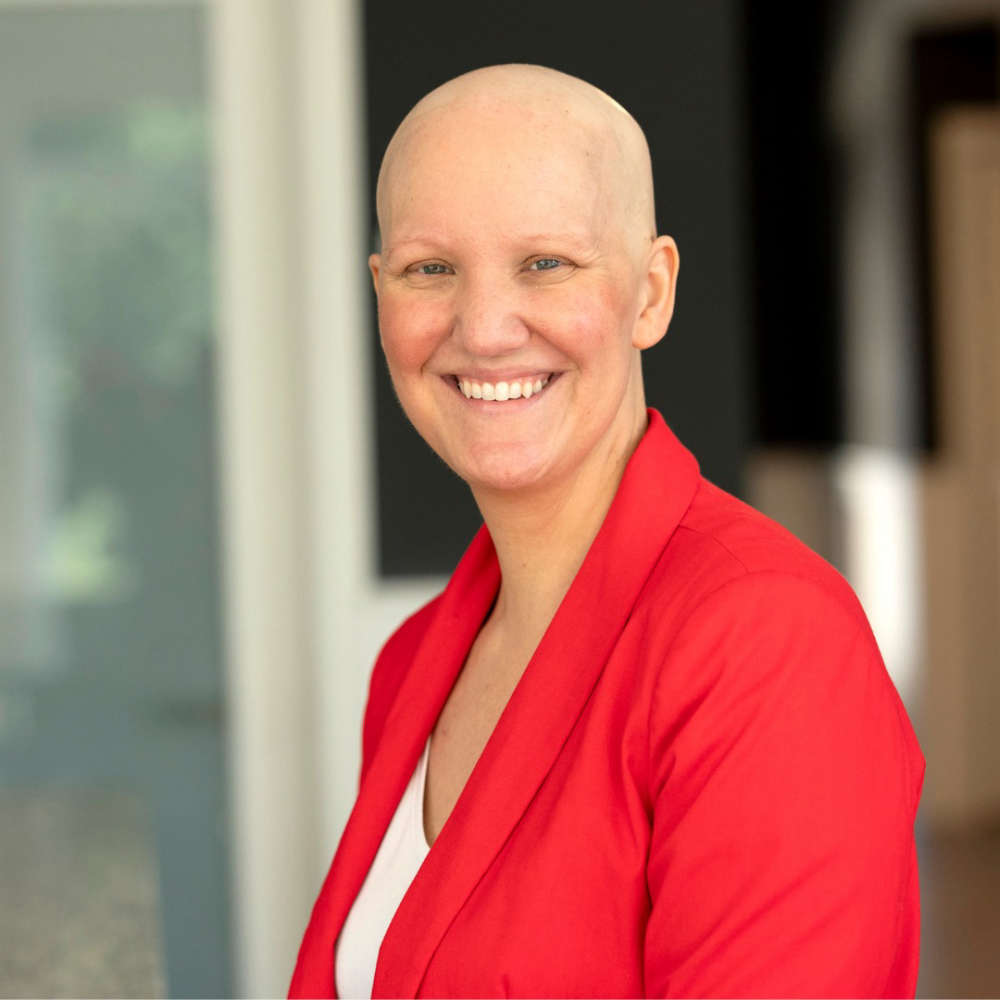 Local Realtor Wins National Realtors Care Award
Local Realtor Wins National Realtors Care Award
 Budget 2024 Tabled in Ottawa
Budget 2024 Tabled in Ottawa
 Local U18 Girls Hockey Teams Wins Gold
Local U18 Girls Hockey Teams Wins Gold
 OPP Investigate Mischief in SWOX
OPP Investigate Mischief in SWOX
 WPS Searching for Stolen Truck
WPS Searching for Stolen Truck
 UPDATE: Suspect Arrested in Delhi
UPDATE: Suspect Arrested in Delhi
 OCL to Celebrate Oxford Local History Day
OCL to Celebrate Oxford Local History Day
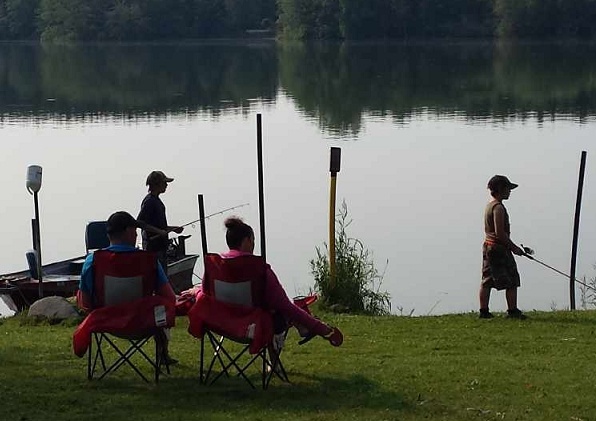 OCNVA Receives Grant to Support Fishing Derbies
OCNVA Receives Grant to Support Fishing Derbies
 Introducing eDash at TDMH and Alexandra Hospital
Introducing eDash at TDMH and Alexandra Hospital
 Federal Budget Day on Parliament Hill
Federal Budget Day on Parliament Hill



Comments
Add a comment